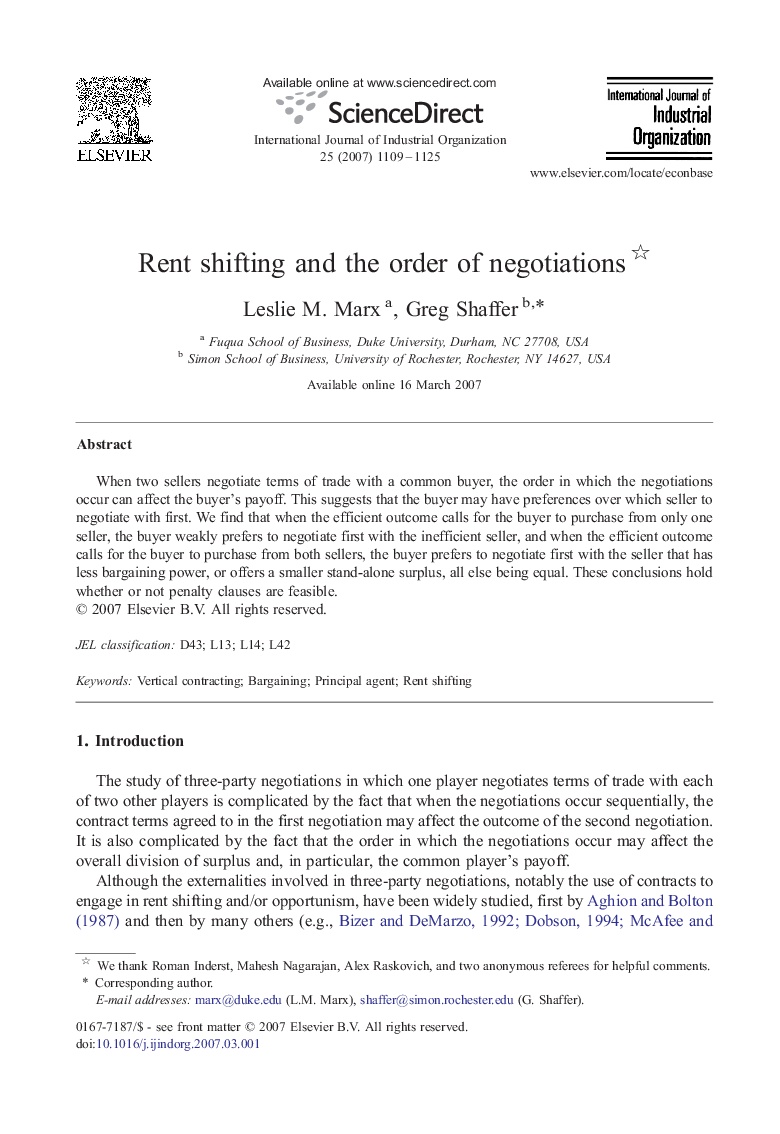| Article ID | Journal | Published Year | Pages | File Type |
|---|---|---|---|---|
| 5078779 | International Journal of Industrial Organization | 2007 | 17 Pages |
Abstract
When two sellers negotiate terms of trade with a common buyer, the order in which the negotiations occur can affect the buyer's payoff. This suggests that the buyer may have preferences over which seller to negotiate with first. We find that when the efficient outcome calls for the buyer to purchase from only one seller, the buyer weakly prefers to negotiate first with the inefficient seller, and when the efficient outcome calls for the buyer to purchase from both sellers, the buyer prefers to negotiate first with the seller that has less bargaining power, or offers a smaller stand-alone surplus, all else being equal. These conclusions hold whether or not penalty clauses are feasible.
Related Topics
Social Sciences and Humanities
Economics, Econometrics and Finance
Economics and Econometrics
Authors
Leslie M. Marx, Greg Shaffer,
